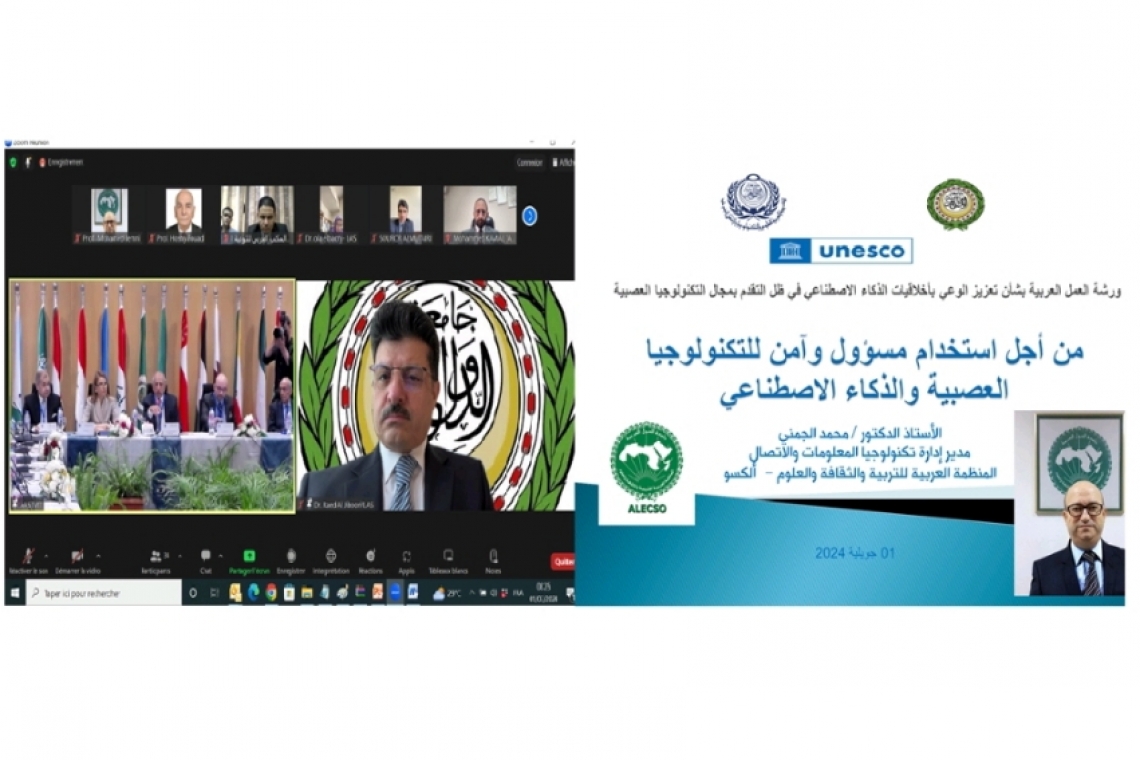In implementation of the Resolution issued by the 56th ordinary session of the Higher Coordination Committee for Joint Arab Action, held at the General Secretariat of the League of Arab States on April 22-24, 2024, particularly under the agenda item entitled "Unethical Uses of Artificial Intelligence", and in accordance with Resolution adopted by the 42nd UNESCO General Conference regarding the development of the first global Recommendation on the ethics of neurotechnology, an Arab workshop was organized on Raising Awareness of AI Ethics Amid Advances in Neurotechnology, in parallel with the Arab Regional Consultation Meeting on UNESCO's Recommendation on the Ethics of Neurotechnology.
The workshop was held on July 1, 2024 under the auspices of H.E. Mr. Ahmed Aboul Gheit, Secretary-General of the League of Arab States, at the headquarters of the Arab Academy for Science, Technology, and Maritime Transport in Alexandria. It was co-organized by the General Secretariat of the League of Arab States, the UNESCO Office in Cairo, and the Arab Academy for Science, Technology, and Maritime Transport.
ALECSO was represented by Dr. Mohamed Jemni, Director of ICT Department, who participated in the workshop virtually
Dr. Mohamed Jemni offered a presentation entitled "Towards Responsible and Safe Use of Neurotechnology and Artificial Intelligence," in which he underlined the significant role of neurotechnology and AI in enhancing human capabilities and treating neurological diseases. He highlighted the numerous advantages of integrating AI into neurotechnology, including ensuring rapid and accurate analysis of neural data, providing personalized treatments, and improving brain-computer interfaces, which enables individuals to control electronic devices using only their thoughts.
Dr. Jemni emphasized the importance of adhering to ethical standards in the process of developing and utilizing these advanced technologies. He pointed out that protecting personal neural data, ensuring informed user consent, and maintaining transparency in research and development are key to a responsible and safe use of this technology.



